In early 2025, announcements of new tariffs and a 10% duty caused market instability. The additional surcharges on key imports began to impact the hotel industry as well.
This report explores the tariff impact on hotels, highlighting the specific challenges they face due to these trade policies.
Market Turmoil: The Unpredictability of Tariffs
The tariff announcements by the Trump administration in early 2025, particularly the sweeping 10% baseline duty and targeted surcharges on strategic imports, sent markets into turmoil.
This was not simply because of the policies themselves, but because of the unpredictability surrounding them.
Frequent shifts in trade policy, sudden announcements of new tariffs and threats of further escalation create an unstable environment that is difficult for businesses to navigate.
Hotels, in particular, rely on long-term planning and forecasting, making it challenging to adapt to rapidly changing trade conditions.
Undermining Confidence: Tariff Impact on Travel and Hospitality
More than the tariffs themselves, there is an important factor to remember: Tariffs generate uncertainty. Industries like travel and hospitality are inherently confidence-driven.
People travel for leisure and business only when they feel secure about the future. Tariff battles, especially when introduced unpredictably or accompanied by threats of escalation, undermine that confidence.
When businesses and consumers feel uncertain about the economic climate, they are more likely to delay travel plans and scale back spending.
This can have a cascading effect on the hotel industry, leading to lower occupancy rates, reduced revenue and decreased profitability.
Decline in US Visits Due To New Tariffs: An Unwelcoming Climate
One of the most immediate consequences of the trade tensions and political climate was a decline in visits to the United States. U.S. visits dropped by 11.6% in March 2025 compared to the same month in 2024.
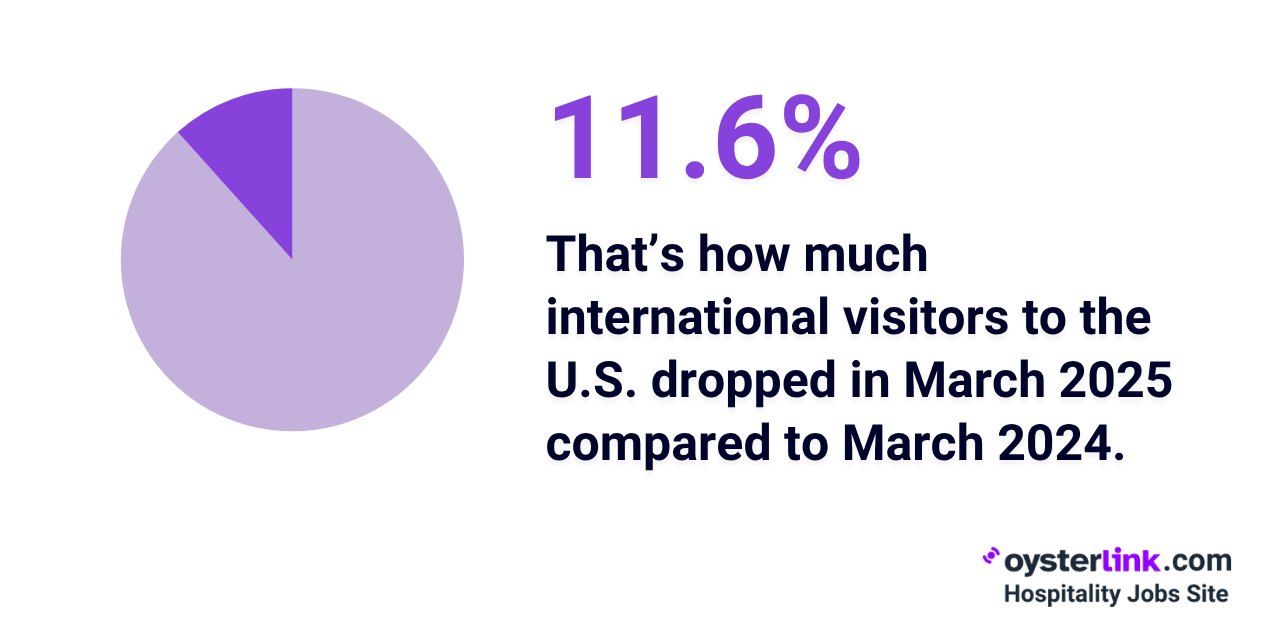
This decline reflects a combination of factors, including concerns about the unwelcoming political climate and the increased cost of travel to the U.S. due to tariffs.
As international travelers reconsider their vacation plans, the hotel industry faces a direct hit from reduced demand.
Impact of Tariffs on Canadian Tourism: A Significant Blow
Canada, traditionally the largest source of international tourists to the U.S., is expected to reduce outbound travel by over 20%, potentially wiping out $9 billion in U.S. tourism revenue.
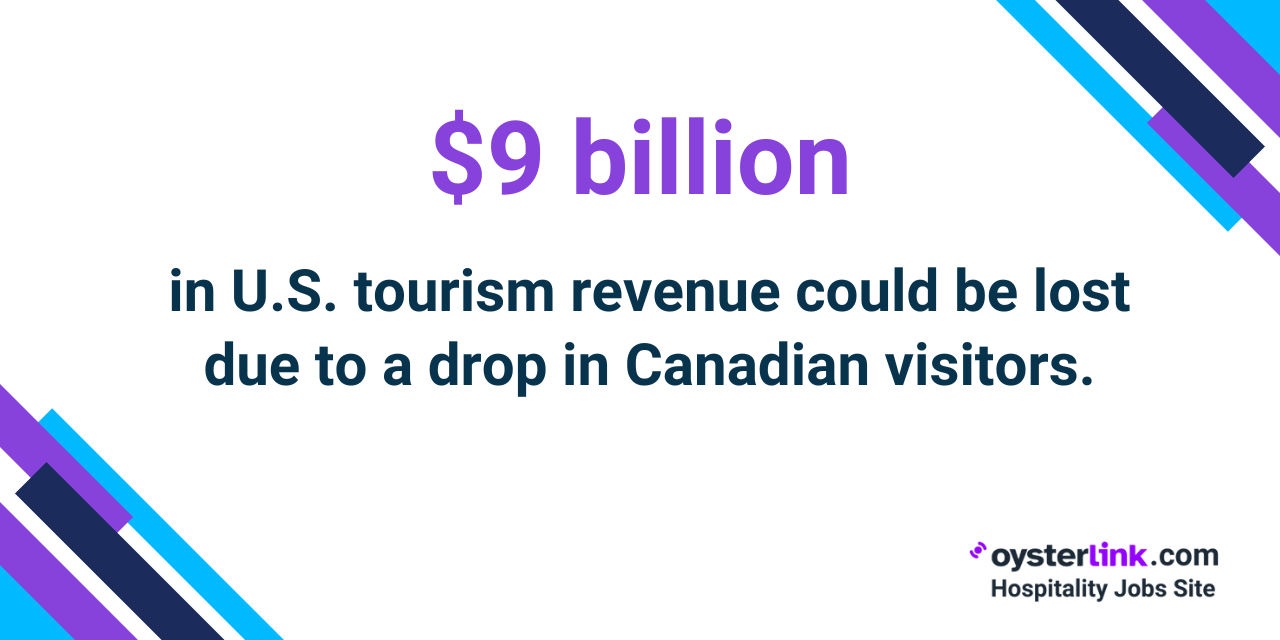
This drop in Canadian tourism represents a significant blow to the U.S. hotel industry, particularly in border states and regions that rely heavily on Canadian visitors.
The close economic ties and geographical proximity between the U.S. and Canada have long made Canadians a valuable source of tourism revenue.
Therefore, a decline in tourism from Canada will result in a ripple effect, impacting hotels, restaurants and other businesses that cater to international visitors.
Downturn in Hotel Performance: Reduced Occupancy and RevPAR
Hotels are not immune to these macroeconomic pressures either. Across multiple regions, recent data confirms a downturn in international travel and hotel performance.
U.S. hotel occupancy fell by 2.3 percentage points in March 2025 compared to the previous year, while revenue per available room (RevPAR) dropped by over 4%.
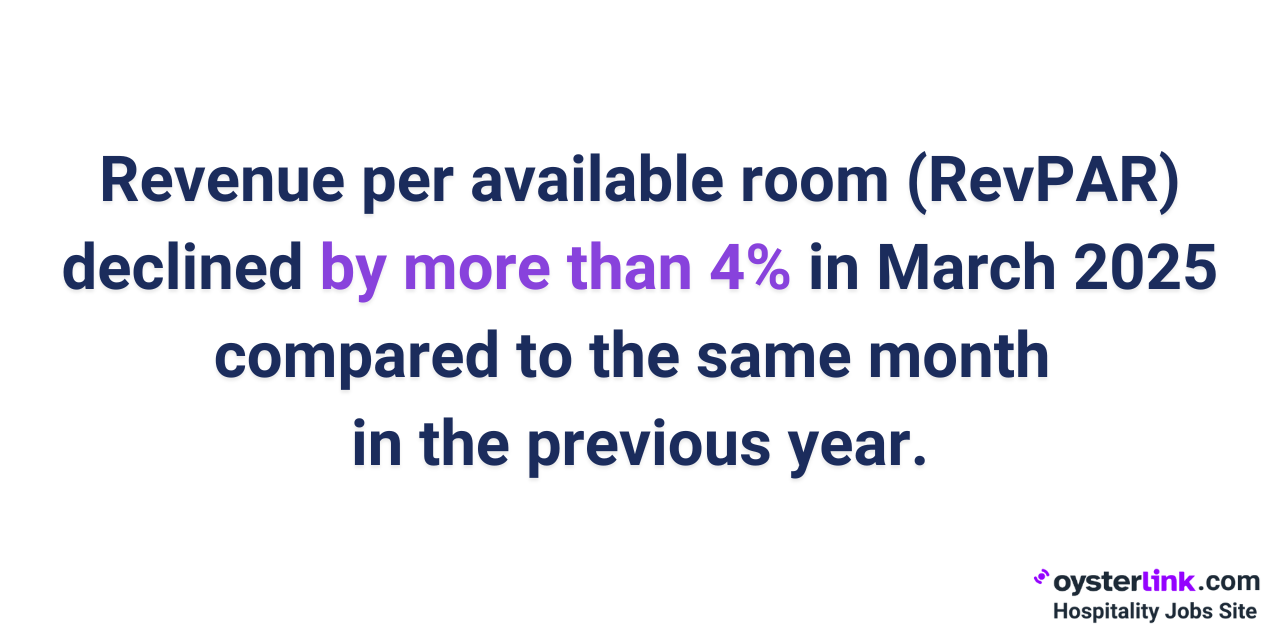
These declines in occupancy and RevPAR indicate that hotels are struggling to maintain their previous levels of profitability.
With fewer guests and lower average rates, hotels face increased pressure to cut costs and find new revenue streams.
Border Hotels Hit Hardest by Tariffs: Reduced Cross-Border Tourism
While the impact of tariffs is felt nationwide, hotels near the U.S.-Canada and U.S.-Mexico borders have experienced sharper declines in performance, indicating reduced cross-border tourism.
These hotels rely heavily on travelers crossing the border for business or leisure, making them particularly vulnerable to shifts in trade policy and international relations.
The decline in cross-border tourism not only impacts hotels but also has a ripple effect on local economies, affecting restaurants, shops and other businesses that depend on visitor spending.
Ongoing Reliance on Imported Goods: Higher Operational Costs
One of the most enduring consequences of Trump’s tariffs has been the consistent rise in operational costs for hotels.
Even after his first term, with some tariffs reduced or modified, the price of imported goods has remained higher than before the trade policies took effect.
Hotels in the U.S. continue to rely heavily on imported goods and materials — from furniture and linens to electronics and kitchen supplies.
The tariffs imposed on products from countries like China and other global manufacturing hubs have directly increased the prices of these essential items, continuing to burden hotel operators with higher costs.
Disruption to Construction and Renovation: Delayed Timelines and Increased Costs
Tariffs have significantly impacted construction costs, with estimates varying.
According to Michael Bellisario, a senior analyst at RW Baird, materials bought from abroad (usually 15% to 20% of a project's budget) mainly come from countries like China and Vietnam.
As a result, building or renovating a hotel now could cost about 5% to 10% more.
The rise in prices of key materials such as steel and aluminum, which faced high tariffs, has caused project delays and driven up budgets.
This increase in costs is not just a short-term issue; it has a lasting effect on the growth and development of the hotel industry in the U.S.
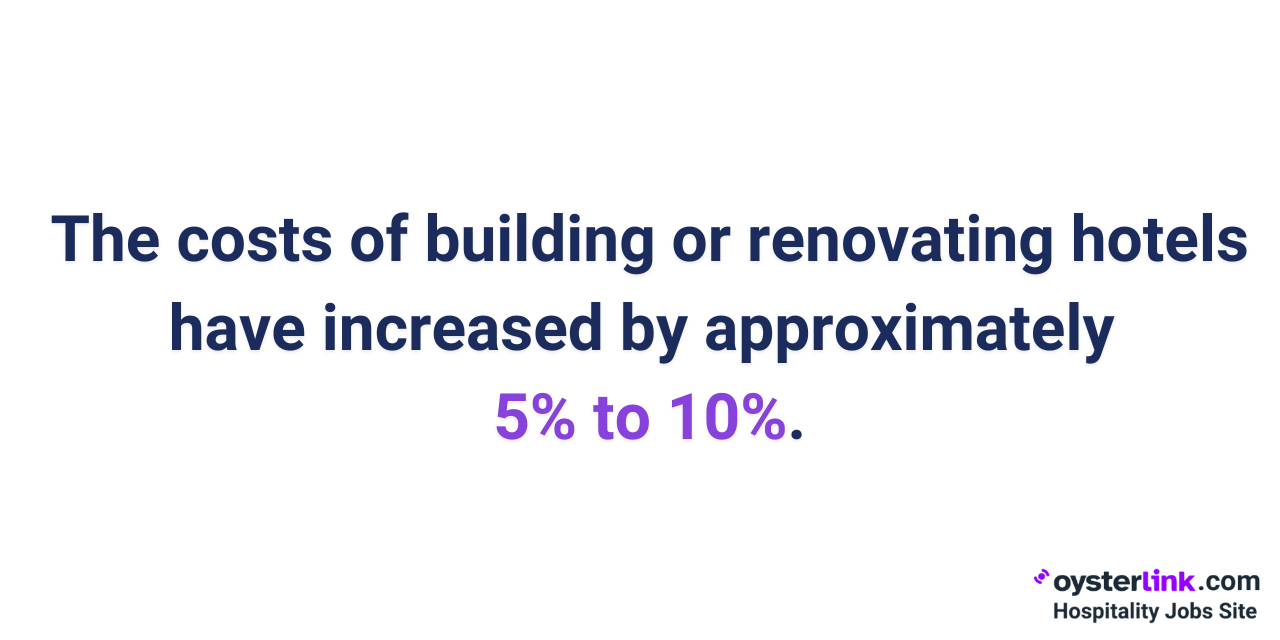
Major Brands Lowering Forecasts: Signs of Caution
The impact of tariffs and trade tensions is mirrored in the cautious forecasts of major hotel brands.
Marriott International lowered its 2025 revenue forecast in April, citing “softening global demand.”
Hilton, reflecting similar concerns to Marriott, recently cut its RevPAR expectations for 2025, attributing the reduction to travelers adopting a "wait-and-see" approach due to the uncertainties arising from tariff policies.
These downward revisions in revenue forecasts highlight growing concerns among industry leaders regarding potential economic disruption and decreased travel demand.
As these major brands adjust their expectations, it sets a cautious tone across the entire hotel industry.
Methodology
The facts presented in this article are derived from reports and articles by EHL, The Guardian, Politico, STR, CNBC and Hotel Management Network.
These sources provide insights into the effects of tariffs on the hotel industry, including specific data points on revenue forecasts.
About OysterLink
OysterLink is a dedicated platform that links hospitality professionals with employers, streamlining the process of finding top hospitality jobs or hiring the right talent efficiently.
For job seekers, it offers salary information, career guidance and access to top job listings.
For employers, it provides tools to create compelling job ads, identify ideal candidates and access valuable business resources.
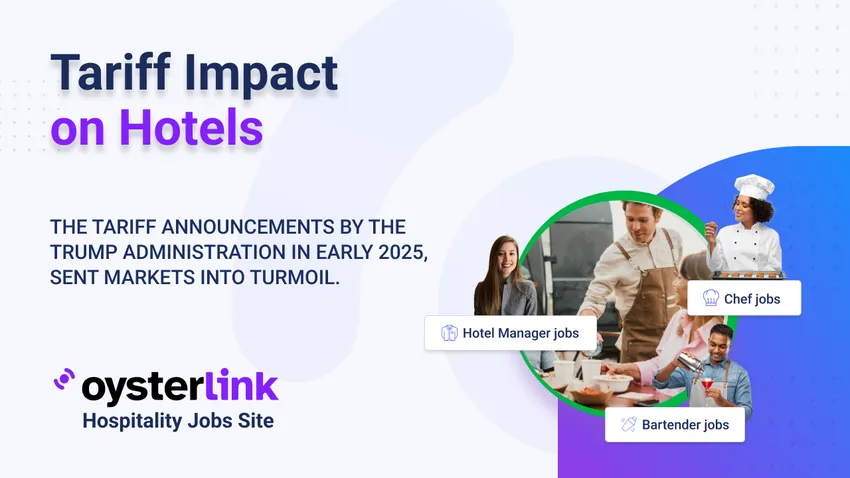







Loading comments...